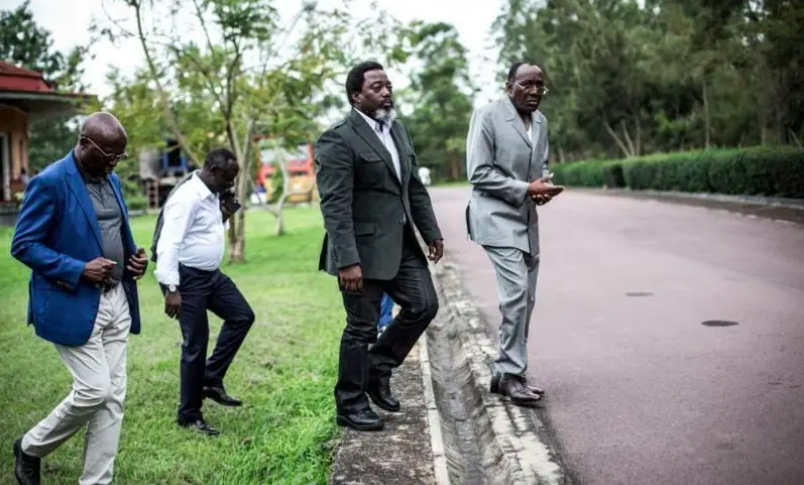Former President Joseph Kabila has called on the like-thinking Congolese to mobilise against the disastrous authoritarian rule in Kinshasa.
He made the remarks on Friday breaking a six-year long silence and announced an urgent trip to Goma, the capital of Northern Kivu Province. The former leader, said, he would “travel in the coming days” to Goma.
“A few days ago, following a simple rumour on the street or on social networks, about my alleged presence in Goma, where I will be going in the coming days, as announced elsewhere, the regime in place in Kinshasa took arbitrary decisions with disconcerting levity,” he declared in a public speech.
The former President has also accused the Kinshasa government of having “abandoned” the people of the East and of having “punished” them, notably by “disconnecting local financial institutions from the national banking network” and “restricting the movement of people and goods.”
“These decisions and many others are suffocating you and making your life more precarious than ever,” Kabila added.
Kabila has called for “humanizing living conditions” in this part of the country urged the authorities to “protect the population” and stressed that “the army, the justice system and other structures responsible for order and security must truly serve the population and respond to its aspirations.”
Kabila’s Proposal to Liberate the Country
The former leader broke his silence Friday proposing a 12-point “citizens’ pact” to “save the Congo.”
Kabila justified this statement by the “gravity of the situation” facing the country, believing that “the DRC’s vital prognosis is at stake.”
“To remain silent again would have been a crime before history,” he declared in a message addressed to the Nation.
He has denounced an “authoritarian drift,” an “excessive concentration of power,” and a “collapse of national cohesion.”
Kabila criticized the judiciary, which he described as “submissive” and “instrumentalized,” and parliament, which he described as having become a “recording chamber.”
He criticized the current economic governance, which he said was marked by “the resurgence of inflation,” “rising debt,” and “a resurgence of poverty.”
On the security front, he denounced the use of “armed groups,” “tribal militias,” and “foreign forces,” claiming that the national army had been “humiliated” and “brought into disrepute.”
He also spoke of “unpunished massacres” committed in particular in Makala, Goma, and Kilwa.
The former president concluded his speech by calling for a “patriotic surge” through a “citizen’s pact,” based on twelve commitments, including the end of “tyranny,” the restoration of the rule of law, national reconciliation, the withdrawal of foreign troops, and an end to the use of mercenaries.
